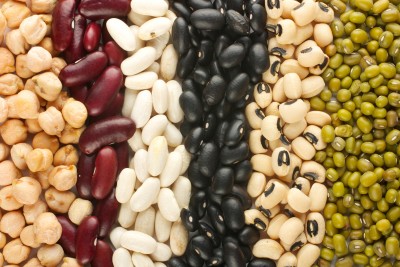Protein the Building Block
 Protein is a fundamental part of our nutrition.
Protein is a fundamental part of our nutrition.
Aside from water, proteins are the second most abundant molecule in the body and are a necessary part of our nutritional needs. Proteins are responsible for growth and maintenance of every cell and tissue, especially muscle, proteins are a key component of blood cells, skin, hair, and internal organs, and are also used by our body to carry out necessary hormone, enzyme and immune functions. Proteins are also a source of energy for our body in the form of calories and contain 4 calories per gram.
Proteins are made up of amino acids, which are chains of molecules that are used by our body to repair and build cells and tissues. Some amino acids can be produced by our body, called “non-essential amino acids” and some our body is not able to produce and must come from food that we eat. These are called “essential amino acids”. When a food contains all of the amino acids the body needs, it is called a “complete protein” and foods that contain only some of the essential amino acids, but not all, are referred to as “incomplete proteins”. All animal foods such as meats, seafood, dairy, and eggs contain all of the amino acids, both essential and non-essential and if you eat animal foods, you are sure to get all of the essential amino acids. Plant foods are incomplete protein sources and each contain only some of the essential amino acids, therefore it is necessary to eat a variety of plant foods to ensure nutritional needs are met.
Protein Combinations for Plant Foods:
Since plant foods contain incomplete proteins, if you are a vegetarian or vegan, it is important to pair foods so that protein needs are met. The three categories of plant food protein sources are: nuts and seeds, grains, and legumes or beans. In order to consume all of the essential proteins from whole plant food sources, it is necessary to eat foods from two of these categories. For example, a meal with rice and beans together, or a sandwich with whole grain bread and peanut butter would provide all of the essential amino acids.
Nuts and Seeds: Almonds, peanuts, cashews, sunflower seeds, pumpkin seeds, walnuts, etc.
Grains: Whole grains breads and cerials such as rye, wheat, oat, rice, spelt, quinoa, brown rice, etc.
Legumes: beans & peas – black, kidney, pinto, black eyed peas, runner, chick peas, lentils, etc.
Protein Needs:
In general, most people eat enough protein without needing to keep track, but some dont. It is recommended that adults consume 10-35% of our total calories in protein. For the average adult woman, a general recommendation would be to eat approximately 46 grams of protein per day and 56 grams per day for men. While adequate protein is necessary for health, eating too much protein can also pose risks, so be aware of your consumption. Some of the most common protein sources are meats, so be sure to choose lean meats in order to avoid additional fat, cholesterol, and calories. Many studies show that humans consuming the bulk of their protein from plant sources have less incidence of lifestyle related diseases.
Protein Nutrition Tips:
- Avoid processed foods and eat a variety of whole foods to ensure balanced nutrition
- If you eat meat, choose free-range and organic animal foods to ensure the healthiest protein sources possible
- In ensuring protein needs are met, be aware that when eating protein foods, you will likely be taking in other nutrients as well
- Protein is a important nutrient, but avoid low and high protein diets
- Consume approximately 10-35% or your daily calories from protein
For assistance with your nutrition, browse our Merchant Directory for Nutrition experts, Personal Trainer, Holistic Health Services, Lifestyle Coach, or to find Healthy Food options.
Author: Tony Montijo, BS Kinesiology, CPT, CES






